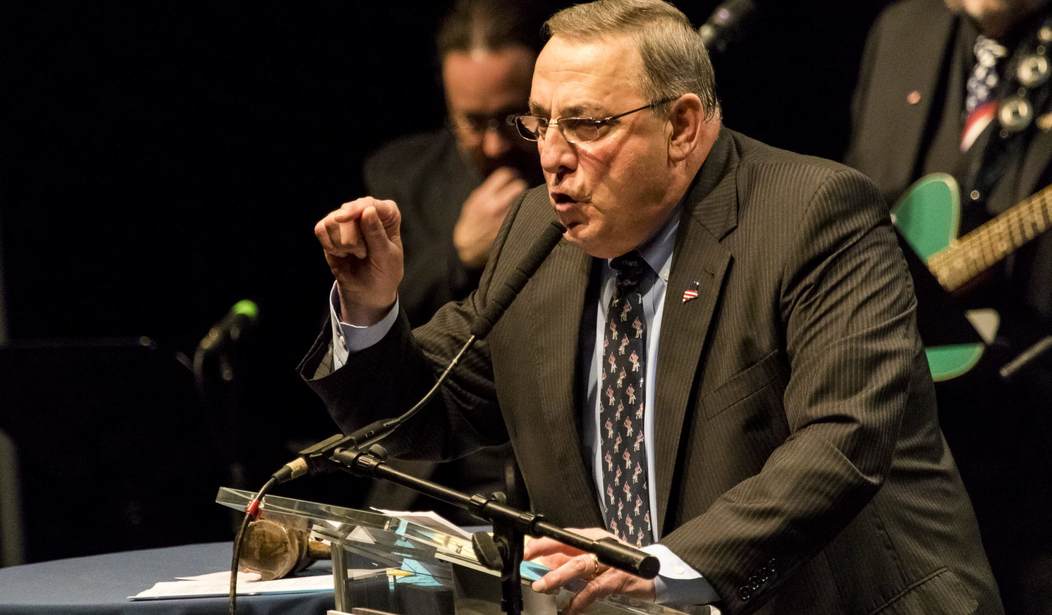Maine Gov. Paul R. LePage (R) told the U.S. House Committee on Natural Resources to keep its hands off a tract of land in his state during the committee’s field hearing in Augusta, Maine.
And he made no secret of the fact that he welcomed the opportunity.
“It is through meetings like this, and not through rallies with bused-in supporters, that those in Washington have a true opportunity to hear from those that would be affected by this proposed National Monument designation,” LePage said.
The problem is those people who rode Greyhound or whichever means of transportation they chose came at the behest of the family that owns the property — the Quimby family, the people who brought Burt’s Bees lip balm and other personal care products to the world, wants the land turned into a federal park.
Burt’s Bees co-founder Roxanne Quimby and her son, Lucas St. Clair, have worked for more than a decade to convince federal officials that the 87,000 acres they own should be taken over by Washington and turned into the Katahdin Woods and Waters National Park.
There’s no convincing Gov. LePage it would be a good idea. He threatened three years ago to build a state road through the land if that’s what it took to stop Quimby.
Quimby and her son want to donate and through their nonprofit foundation, Elliotsville Plantation Inc., establish a $40 million fund to pay for the operation and maintenance of the park and monument.
Last year, Quimby and St. Clair switched gears slightly and decided to add the idea of a national monument to their proposal because President Obama could make that decision — and they know he’s not afraid to do this —without congressional approval, or even consulting Congress.
LePage is the first to admit the family’s preference. He accepted, or charged, depending on your point of view, that the Quimbys had spent millions of dollars on lobbying focus groups and polling to convince the Obama administration the cutover woodlot was worthy of national monument status.
But LePage argued there was a more important consideration than the Quimby family’s wishes: the desires of the people who live near the land, who have voted in opposition to federal control of the Katahdin region.
However, Gail Fanjoy, president of the Katahdin Chamber of Commerce, wrote an op-ed in the Portage Press Herald in which she claimed the creation of a national park and monument would also create jobs, of which the Katahdin region is in desperate need.
“Once we had businesses that catered to working folks with good incomes; now we have emergency food pantries and thrift stores. If our homes are selling at all, they are selling for pennies on the dollar,” Fanjoy wrote. “For many, despair has settled in as the situation has gone from bad to worse. Although we will continue to work hard to maintain as many forest products jobs as possible, we also need economic diversification – which a national monument can help provide.”
But, again claiming to look at the bigger picture, LePage said this is a case in point of the need for reformation of the federal Antiquities Act, upon which the landowners based their argument.
LePage urged members of the House Committee to seek reform to the Antiquities Act, which supports limiting abuses of the law.
“I am not aware of a better case study for Antiquities Act reform. It seems the law could be grounded by requiring some local or statewide support or affirmation of a national monument designation,” LePage said. “The way the law stands now, however, there is really no check on the president’s power by those affected.”
He is not the only Republican who feels that way, inside or outside Maine.
“The proposed monument designation in Maine’s Katahdin region would be another abuse of the Antiquities Act, exercised unilaterally with complete disregard for local residents, businesses, and elected officials,” Rep. Rob Bishop, a Republican from Utah who chairs the House Natural Resources Committee, said in a statement.
Chris Edwards, the director of tax policy studies at the Cato Institute, sees a problem with the Quimby donation and plan for a national park and monument that goes beyond the federal Antiquities Act.
“Quimby must have a romantic and unrealistic vision of the NPS (National Park Service) because the real agency is likely to mismanage her land and run it down over time. The NPS operates more than 400 parks, monuments, and historic sites,” Edwards said. “The total acreage of NPS holdings has quadrupled from 20 million in 1940 to 85 million today. That is far too large an inventory to manage efficiently, and many NPS sites suffer from deterioration.”
Edwards believes the final lesson Quimby and her son will learn, if Obama approves their proposal, is “human bureaucracies are not like efficient bee colonies.”









Join the conversation as a VIP Member